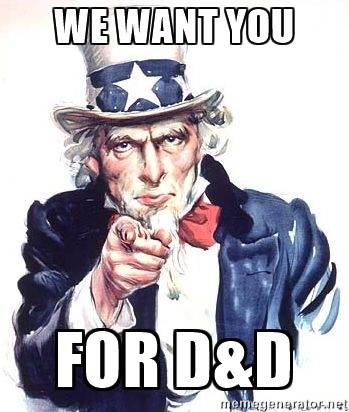 Every group has been there at some point: a player drops out of your D&D campaign, leaving your party down an adventurer and decidedly incomplete. And it wasn’t just any party member: the party leader has left! Your party now needs to find a new leader. Your party searches throughout all of Neverwinter seeking the best adventurer to join your party (well, the best adventurer who’d be willing to join your party). You’ve narrowed down your search to four candidates, but everyone is pretty convinced it’ll come down to a choice between two of them. The candidates are all known to one another and are competing to join your group. And now for the question at hand: who will you hire to join your party? Important disclaimer- any resemblance to persons real or fictional is completely intentional. The following content is satirical and in no way representative of any opinions or beliefs of anyone at High Level Games, the author included. If any of the following offends you, we do apologize and ask that you please lighten up. 1. Hillard Stinton- Level 15 Rogue. The rogue has a shady past: there have been many accusations, but nothing has stuck. She has the thief Roguish Archetype but claims to have the magical abilities of an arcane trickster. She has a high intelligence but a low charisma, a point the bard continually brings up. Despite this, she has skills in persuasion, deception, and intimidate, which she uses regularly and to good effect. She is the most experienced member of the available candidates, having been adventuring for longer than the others; she brings this up whenever the bard is being uppity. She competed with the fabled rogue Popular Folk Hero for her spot as a candidate. She defeated him soundly, though claims of foul play abound. She wields a +1 rapier and leather armor tailored in the shape of a pant-suit. 2. Ronald Stump- Level 14 Bard. The most vocal of all the candidates, the bard believes he can do everything the best. No one expected him to be in the running for this opening, as he had to best many other bards of higher levels to even be considered. He has very high charisma and a chaotic disposition, and as a result is either loved or hated by everyone. Claims to come from the College of Lore, but actually is a part of the College of Valor. He refuses to give Bardic Inspiration to rogues, even in tight spots. Favored spells are fear, suggestion, and vicious mockery. He had an accident in his youth while experimenting with the ‘Disguise Self’ spell, permanently disfiguring his hair. Very proud of his treasure hoard. Arguably the most effective of the party in one-on-one combat. Wields a mundane battle-axe and is wearing +1 plate armor; he may not be proficient with these armaments, but try telling that to him. 3. Trill Klein- Level 8 Druid. A well-intentioned but little-known among the other candidates, she set out from her druidic grove to make the world a better place. Unfortunately, she isn’t likely to actually defeat any opponents in combat, but she will be happy just to have participated. Originally having studied to be a physician (as well as being the only one among the candidates with divine magic), she would be perfectly suited to play the role of healer. Very passionate about the preservation of nature and the collection of herbs for the brewing of potions. Her favored spells are cure wounds, plant growth, and pass without trace. Especially hates the “overuse” of the grease spell currently found in wizarding society. She is unarmed and unarmored. 4. Larry Swanson- Level 9 Wizard. He wants to be seen by everyone as the go-to candidate, but few people have taken him seriously. He especially wants to participate in melees like the bard and rogue, but he has not been allowed (something about wizards and being in a support role). He has a moderate intelligence but a low wisdom. His knowledge is deep but limited; he knows a great deal about his areas of expertise, but lacks even basic knowledge about things and places he hasn’t studied. He is also the most physically capable of all the candidates, bizarre given his choice to be a wizard. His specialty spells include dream and confusion, which he sometimes accidentally casts simultaneously. He wields a wand of ‘Freedom of Movement’, which he uses in almost every engagement, being a big believer in personal freedoms (of movement). Being a wizard, he is also unarmored. So there you have it, the four best candidates which you’ve found to lead your party. This is an important choice and shouldn’t be taken lightly, as the future of your party may be at stake. Thankfully, no matter who is selected, there will be many happy years of D&D ahead of us. Lord knows we’re going to need them. - Jake recently returned back to his native U.S. from a brief sojourn in Canada, deciding that he desperately wanted to participate in American democracy for this particular election. Sigh. 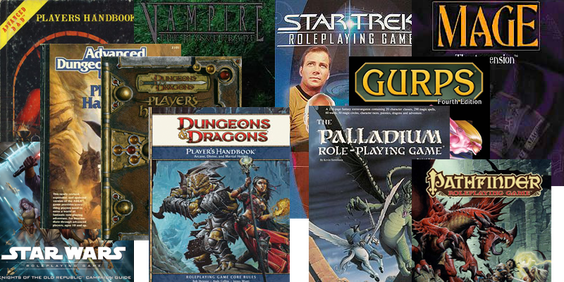 "So what do you do to unwind?" "I play role-playing games." "Silence" How many times has this dialogue been uttered between a gamer and a...non gamer? Muggle? Whatever you want to call him/her. In my day-to-day life, this conversation has happened an average of 2.48 times a week. And what do I do then? How do I bring people into the Dark/Light side (however you want to look at it)? I take a deep breath and…. Explain.... 1. What is it? RPGs (Role Playing Games) are board games without a board. They are games with rules, obviously, but without borders, markers or limits. Another way I describe it is, it’s like a computer game, but there’s a person running it, so there’s no limitations imposed by a programmer. Within the limits of the world (as designed by the person running it), the sky is the limit. Or Deep Space. Or the ocean’s depths. Or wherever it’s being run. 2. How does it work? The person running it (from here on called the GM – Game Master) presents a situation, paints a picture, describes a scene. And sits there. The other players have characters, which are present in that scene. They will then describe what they want said characters to do. Depending on the complexity of the instructions, it could be trivial like walking around a room, or complex like jumping through a wall and punching the baddie so hard, one of his teeth shoots out and smashes an elder idol, revealing the missing key to the temple. You know, improbable. Depending on the difficulty of the action, the GM might want you to roll a dice. Which inevitably leads us to question 3. 3. Do I have to do loads of maths? In a word, no. In a long word, noooooooooooo. The GM might ask the players to roll dice at different times during a game, to simulate the randomness of real life. Sometimes you shoot a whole clip and miss, and you throw a pebble and hit. The maths are simple, add two numbers, at most subtract a third. That’s usually it. 4. How long does it take? This depends wildly, but it normally takes a bit for the game to settle and take off. You do need to be patient, especially in the first couple of games, when the rules of the world and the interactions between the characters are being established. So to answer the question, an average session can take anything from Two to five hours. Three or four would be normal. Any shorter and the characters would still be putting their socks on. Two day binges over a weekend are not unheard of but unusual. 5. How do you win it? You have fun. There is rarely an end point as well defined as that. There might be a boss fight at the end, but a crafty GM might have it escape at the end, keeping it as a recurring baddie. This is quite hard to explain to non-RPG Gamers, as there are usually no win-game parameters. It’s about the story. In the best zen way possible, RPGs are about the journey. 6. Kill, kill, kill, see if anyone’s alive, ask questions. For people raised amongst consoles and gaming PCs it might be hard to wrap their heads around a non-shooting-and-killing-everything-that-moves-and-most-of-what-doesn’t game. Now most RPGs have encounters, where the players…. Encounter things. (Hence the name). These might be traps, beings, environmental issues; the list is pretty much endless. And the dice come out again. You need to simulate the weirdness and randomness of the real world once again. This is where RPGs really shine forth, as the die, those blasted polyhedra, might make things go south FAST. A good GM might not kill the party outright, she might just make things grimmer and grimmer. And the players will have a blast trying to get out. Maybe getting out with a blast…. That’s actually not a bad idea at all….. 7. When do you know it ends? Usually, in an ordinary game, the game "ends" or rather "pauses" when someone needs to leave. This will hopefully happen on a natural pause, a lull in the narrative when nothing is presently happening (nothing too good or too bad is happening, say, empty room, forest clearing, empty alleyway). Overall (see point 5), the point is not to win, and therefore, in a very odd way, there might not be an end, a proficient GM (or combination of more than one, taking turns) might keep a campaign going for ages. Months, easily. Years are not unheard of. Again, it’s about the journey, and not necessarily the end. Role-playing games are about friends, and dice, and games, and fun, and horror, and suspense, and funny voices, and fantastic times. It’s theatre with gaming stuck in, but you don’t have to good at it, or learn lines, or anything like that. You just need to have fun. Lots and lots of fun. Rui is a Portuguese scientist who, after a decade doing odd things in labs, became a teacher. Then, 18 months ago, RPG’ing came into his life and he is now happily juggling the two. He is currently working on a Cypher system space/superhero adventure and a Fate-based Cyberpunk one (with a dark, secret twist). He lives in England with his partner Joana, an ungodly number of potted plants and at least 3 to 4 Adventures across as many rule systems, at different levels of completion. He can be reached at @atomic_rpg  I still feel like a newbie role-player at times. I had a hiatus for a few years when my daughter came and my life was crazy (not always in the best way). I have just started to notice that those same OG signs that my husband had been displaying for years had began to be apparent in my own life. I have been role-playing since 2000. This didn’t seem too long of a time frame until I realized that was nearly the entirety of other player friend’s lives. So, I will own this list (or blame it on the OOG that also resides in my house.) 1.So many stories It is normal for those who have even spent one session role-playing to reminisce about the game before. But when those stories you tell begin to blur with other stories… you know it has been a long time. Which Palladium Titan was the one who asked for surrender when the rest of the party was trying to sneak up on the enemy? Or you turn to your friend to ask him if he remembers that naked bar fight, just to realize that no one in the room was around for that campaign. It is a wake up call; you are the OG. 2. Defending Old Rules or Systems Sure, you may have the new players shaking their heads, but they don’t know the beauty of the old system. There were so many books and add-ons for the game. They don’t know what they were missing. Fold-outs and well-made dungeon maps and did I mention all the extra books? Quantity of books obviously means that the system was better back then. THAC0 really wasn't that bad…. 3.Talking about House Rules to Fix Old Systems Our system was great, I mean, we did change a few things. But that was because we had gamed so long that we tweaked things. It really wasn’t because of flaws, but that we were so good at improving older versions of games. 4. Comparing more that 3 editions of the Same Game No new role-player does this. It is weird. It makes us sound senile. 5. Proclaiming “You have it easy now!” in regards to everything Online groups, podcasts, blog articles, PDFs a plenty online, and ways to connect and play with a group from miles and miles away. You had to build community the old fashioned way with hard work and boot straps. These youngins don’t know the struggle of finding even another group to relate to, other than your immediate group of course. 6. Don’t build ‘them’ like they used to “Them” is your blanket statement that can include players, GMs, resources, or anything else you feel like complaining about currently. 7. A Stack of Books sits idly by collecting dust It takes up your space, but it might be worth something someday. Plus, you would never get rid of them for sentimental reasons. I am sure they will come in handy some day. Maybe one of the new role-player friend you have would like to look through them with you. If not, they look great on your shelf. If any of these rang true to you, I am sorry. I empathise. But on the bright side, my memories, my shelves, and my unimportant gaming trivia are all full. Vanessa is a sarcastic, 30-something wife, mother and educator. She likes things and stuff, but not simultaneously (she is not a machine!) She is also trying out this new twitter handle at @sarasma_nessa (though she is terrible at it)  Humanity. In the World of Darkness, the supernatural creatures you usually play have a level of disdain, if not outright hatred for humanity. In Vampire, humans are the food you consume. In Werewolf, they are the creatures that are destroying Gaia. In Mage, they are the sleepers that produce the consensus you must navigate to work your magic. In Changeling, they are the banal creatures you must encourage to produce art and at the same time are frequently trying to will you out of existence. In Wraith, well, you might wish you were still with your mortal kin, but you are severely distanced from them. Yet, playing humans in the World of Darkness can be exciting, interesting, and deep. You’ll want to sprinkle in knowledge of the supernatural side of the World of Darkness slowly, but as you do you’ll give your players a window into the darker side of life. Here are a few starting concepts for human focused chronicles. 1) The Scooby Gang: You are a group of normal human college kids that have struck out to discover the truth about the supernatural. Perhaps one of your friends was killed by a Vampire, or had their lives destroyed by a greedy Fae. 2) The Academics: You are a group of well educated, archaeologists, or historians that know just enough about the secret hidden worlds around humanity. Perhaps you’ve uncovered some fragments of the Book of Nod, or you’ve realized that ghosts do seem to exist. Together you seek out more knowledge, not to fight the supernatural, but to catalog and understand it. 3) The Gang: You are a group of tough men and women you run the streets. You’ve pushed drugs, run some collections, and you’ve also seen some weird shit. One weekend you lost 3 gang members to a random assault. A few weeks later… they came back, but you weren’t having any of that zombie shit and you offed them, again. You still can’t quite figure out what happened, but you’ve started seeing strange creatures hanging around, watching your crew and you’re pretty sure you’re going to need to go to war. 4) Grieving Family: You are a family who has recently lost a parent, but that parent needs to reach their children. You’ve been talking about their life, memorializing them, and then the lights start to flicker, you see them, and messages begin to appear in the house. Thought it won’t be easy, you know you’ll need to decipher these clues quickly or something worse will happen. What that worse is… you don’t know… and you might not want to know. 5) Acting Troupe/LARPers: You’ve been really into this new improvisational acting game that just got released, Weirdo: The Strangeness. Playing this game excites the group in a way that Who’s Line never did, and you want to play it every chance you get. The Storyteller for this game is a strange, gruff, tall, ham-fisted woman who may simply be… trolling… your group. Even if she is, she has a way of making you all feel like you are a part of something bigger than yourself. Game tonight, don’t forget your costume! 6) The Police: You are a part of a small city police force. You, your partner, and a few other members of the force have stumbled across some strange footprints in the park. This park often has odd sightings, and at least once a month… on the full moon… some member of the populace is got a few blocks away screaming that they saw… something terrifying. You’ve decided you are going to stake out the place, trying to find the reason for these weird occurrences. Maybe you’ll find something… maybe you won’t. These are just a few ideas for games that you can use as a springboard to create your own mortal game. I’ve got a mortal game coming up myself. I won’t give away any details here, but I’m hoping to give them a slow sense of foreboding… until they witness something… monstrous in the night. With 17 years of playing rpgs, Josh started with Mind's Eye Theater LARPs and loves the World of Darkness. He recently launched,www.keepontheheathlands.com to support his gaming projects. Josh is the administrator of the Inclusive Gaming Network on Facebook. He’s a player in Underground Theatre’s and One World By Nights Vampire LARPs and is running both a Mage game and a Dark Ages: Vampire game. He’s a serious advocate for inclusive gaming spaces, a father, and a recent graduate from the International Peace and Conflict Resolution graduate program at American University in Washington, D.C.  There’s a coolness in the air. The leaves have fallen and we’ve all been hiding under our blankets watching Stranger Things, waiting quietly in anticipation for some ghoulish good times. So what are your plans this Halloween? Staying at home, locking the door and eating the candy you bought, while crying in shame? Or are you dressing up as your favorite sexy Pokemon and hitting up your ex’s house for a little trick and treat? Whatever your plans are; wet your whistle leading up to the big day with a little playtime, and what better games to put you in the Halloween mood than a good ghost story. 1) Ghostbusters/Ghostbusters International- West End Games Set in the same world as the movies, Ghostbusters offers characters the chance to set up a Ghostbusting franchise outside of the city if New York. West End Games made the rules system super light and uses six sided dice pools to resolve most challenges. The coolest part of this system is that it came with a ghost dice, which had the Ghostbusters logo instead of a six. It represented bad luck and when rolling if the logo came up it would cause some sort of accident or mishap. Pyramid magazine once wrote that Ghostbusters was the most under rated game of the millennium, and the first RPG ever to use a “dice pool” mechanic. 2) Ghosts of Albion- Eden Studios, Inc Ghosts of Albion mechanics based upon Eden Studio’s Unisystem. It’s pretty generic and uses a point system to build attribute abilities, and a ten sided die to resolve challenges. The game focuses upon a more cinematic experience for the players, which is good since the established setting is based upon the books and films of the same name. Set in Victorian London, Eden did an excellent job of bringing a rich and detailed experience to the table, highlighting the horror of fighting demonic entities with the supernatural aid of England’s mightiest spirits. On a side note Eden offers a playable Army of Darkness module under it’s Unisystem. 3) Orpheus- White Wolf Publishing Orpheus is part White Wolf’s World of Darkness product line and is a ghostly experience built upon the bones of its predecessors Wraith: The Oblivion and Geist: The Sin Eater. For those of you that don’t remember for a brief time White Wolf titles were cancelled as the company was having merger issues but all books are now available on DriveThruRPG. Orpheus differs from other World of Darkness titles as it focuses exclusively on ghost and spirits and creates a microcosm for itself within the larger setting. For this purpose White Wolf published a number of specifically planned adventures, which were in-depth and immersive. Not surprising since it uses the Storyteller System as its mechanic. What kinda makes this one special is that White Wolf wanted a strictly ghost-on-ghost experience, integrating other creatures or entities that weren’t spirits of some kind was extremely discouraged. So the bell has wrung, it is the witching hour. Set up the table, turn out the lights, and bust out the dice. You might need some player though, so who you gonna call? Role-Playing Gems: Chapter One Burning Wheel or 6 Things Your Need To Know Before Playing20/10/2016 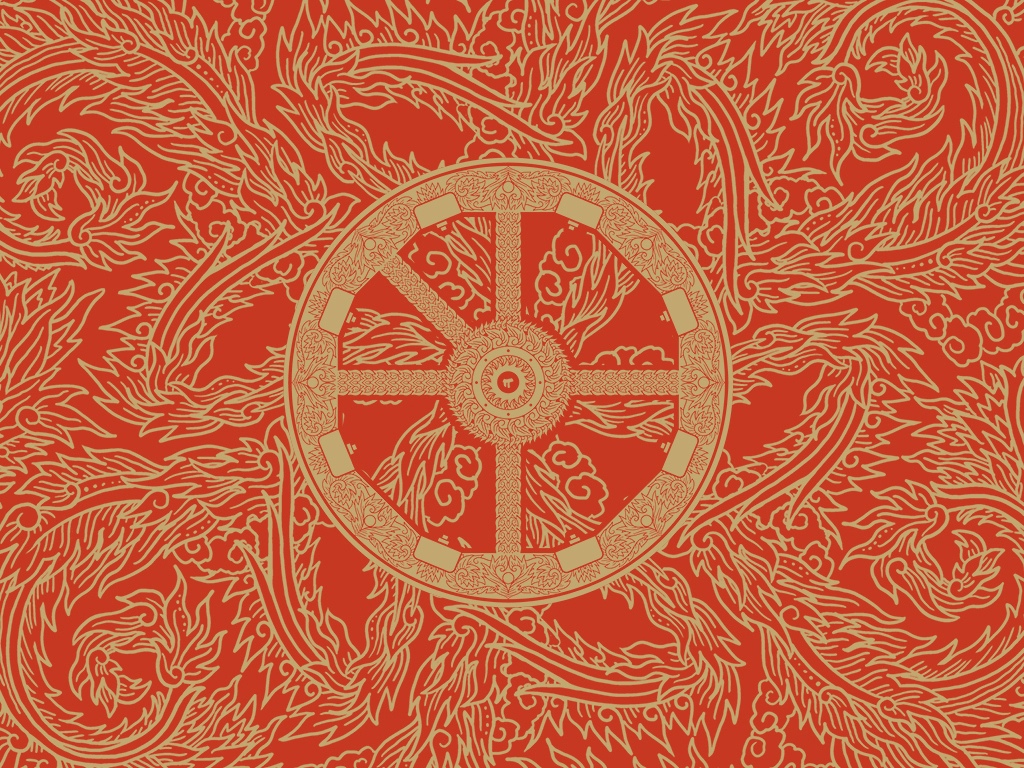 Welcome one and all to a brand new endeavor I’m embarking upon, namely bringing you – our loyal reader base – a glimpse into RPG systems you’ve either missed out on, overlooked, never heard about, or even some that haven’t been invented yet! While part of that statement is an exaggeration to say the least (at least until I get my own system up and running – standby), there are certainly thousands of ways to roll dice with the express objective of advancing through a story and increasing your character’s proficiency at whatever it is they do, liberally swashing buckles, punking cyber, steam or diesel, and even fi-ing sci along the way. Enter Role-playing Gems (see what I did there?), where I’ll rummage the world wide webs of information as well as my personal spider-webbed bookshelves for you, pick out the items I think are noteworthy and should be given a shot in the spotlight, and give it my best college try at reviewing them, pending your appraisal – in the oh-so-familiar listicle form you’ve come to know and we’ve come to love. We’ll be delving deep in all your favourite genres past, present, and even future, provided we can get Doc Brown on the phone, so even if you come across something you don’t think would fit yourself and your group, don’t despair, there are many more of these to come. I’ll start out with my personal high-ranking systems, then roll the specially-designed d20 Gem die – to be revealed at a future date, copyright pending – on what page to turn to next when I run out of those. Maybe you guys could even pitch some advice my way? Anywho, I hope you’ll enjoy the current series and definitely believe you’ll be able to gain something from it in the long run. Make like a dwarf and get your pickaxe on – we’re going gem-hunting! Disclaimer: While listicles are rather straightforward to write, what with their numerical nature and all, I'll be jumping around these games' mechanisms forwards and backwards based on… not a lot of things really, just random info that pops into the ol’ noggin. Enjoy! Chapter I – Burning Wheel We’ll start this series off with a generic system – but not at all in regards to its actual cogs and bits that make it run, no, no, no. You see Burning Wheel is an amazing Role-Playing Game without a setting, the creator (Luke Crane) even stressing the point that players will be able to create much more vivid and amazing worlds that he ever could, while offering them the tools with which they can get their setting moving in a gaming sense. And, oh, such amazing tools these are! 1. Aflame with character? Think for a second, if you will, about D&D – it’s the grandfather, we’ll be referencing behemoths in this series for comparison purposes. During character creation you had your general background information that bestowed upon you a certain effect or five that may or may not come into play at a few points during your adventuring days. Thus, your background choice faded into the background most of the times, having your character put themselves in situations they wouldn’t normally be in just for the sake of using that one mechanism you haven’t really touched in a while. While that’s certainly one way to fiddle with your character’s history, I pose to you the following question: wouldn’t it be better – from both a logistical stand-point as well as thematically – if your initial character choices would be the very platform on which you build each and every part of your actions, day in and day out? Of course it would! Well, that was rhetorical, but still, damn straight that’d be fine! And burning wheel has that in droves. Right from the get-go of character generation (or burning a character, if you will), you're faced with choices that will affect nearly every action you will undertake over said character's adventures. Any item and quirk that you will choose will dictate not only how you will go about resolving a conflict for example, but will also drive you towards gaining certain bonuses because of the way you perform these actions, ranging in magnitude from minor aids to great boons that can have a campaign-altering effect on proceedings. 2. Destiny’s weavings Without going into too much detail - and I could - the 3 parts of a character's initial setup are beliefs, instincts and traits. BITs in short – which is pretty cool if you ask me, since every little bit of these items eventually make up your in-game persona. Max points for that (and also FoRKs, but I'll let you discover what that means by yourself). Beliefs are your top 3 goals in life that you setup from the beginning and go by until you or the story-line deems it necessary or possible to change. After all, people grow over the years and change their outlook on things several times during their lifespan. Having these set at the beginning of a campaign allows both the other players as well as the GM to know what you are after and either help fulfill or allow the option of challenging these beliefs more organically. Instincts showcase your character's course of action during a certain situation, and are marked by the words Always, Never, and If/Then. This not only gives you a frame on which to base any and all decisions you may need to make. While these may also change over the course of a campaign, they offer you a proper, solid basis from which to actually feel that growth as opposed to just gaining a +1 in being a quick brown fox who jumps over the lazy log. They're also good for when GMs are feeling devious and trying to push you into a corner – that's when you go “no, it very obviously states here that my instinct is to 'Always be a brave Sir Robin', it's not my fault you didn't get that reference. Now, I roll to run away in the face of the vicious flock of chickens!” Traits are the most mechanical of the current three character quirks we're discussing, traits also effect game-play in either adding dice to rolls, breaking ties by being called-on, or offering another character layer via stuff like fighty, determined, or downright bonkers to the bone. One of those may be a personal trait. 3. Crunching numbers Although having a very 'fluffy' near-600-page book (at least for the Golden Edition that compiles several previous entries in the series), Burning Wheel deals with all of the above mechanisms as well as other innovative ones it employs rather simply. For one, it uses D6s, probably the most widespread dice this side of the Big Bang, and certainly your best bet at being present in any and all gaming homesteads. The way in which successes are (usually) measured are by rolling 4, 5 and 6s, with 1, 2 and 3s being traitors that work against your chance at succeeding. You're trying to beat a certain number of successes by rolling a set amount of dice based on your skill, its shade and various modifiers that may apply to a roll. Skill improvement is also done rather ingeniously if you ask me – the character sheets present you with small boxes that you can tick once you achieve various results by testing that skill. As such, the better you do at it over time, the better you actually get at it – evolution through training! Great stuff! A skill's shade (Black, Grey or White) also has an impact on what you need to roll, Grey meaning 3s are no longer traitors, and White giving you the near-supernatural ability of rolling 2s or better to succeed at something. It's as simple as that, really... Not much more to it for a backbone, and it has just the right amount of simplicity and opportunity for special rules being added via character peculiarities to work with just about anyone, no matter their experience at role-playing. 4. Arthafully done! Evolving your character is done by spending Artha (Sanskrit, google it), allowing you to fiddle with beliefs and instincts and turn them into traits of various potencies. Not unlike most things in this game, Artha comes in 3 variants: Fate, Persona and Deeds, each more powerful than the last. Fate is awarded when you role-play according to your character's set BITs, allowing minor aids when situations deem it usable. Persona comes along when someone breaks out of the mold, does something that makes thematic sense and can be used to modify dies following rolls. Deeds are the utmost a character can achieve and are usually awarded when someone goes above and beyond what is required of them, subsequently allowing heavy dice roll modifications. The Artha categories are pretty extensive when it comes to their explanation, so I suggest getting your hands on a Burning Wheel book (if you haven't already, mesmerised by the sheer amount of thematic options presented in these couple pages) and digging into them for a feel of how even the smallest gesture you make at a given time, a joke or a nod can all have some bearing on you driving your character forward into the story and on to great and greater things… 5. What… is your quest? But if you thought that was all there was to it when burning a character, think again... There are also lifepaths that influence the final concept you end up playing. Starting with the general campaign idea, you can opt to be a Dwarven Coward, Elven Lancer, Ambitious Noblewoman, Astride the Beast (that's a mounted orc if you're wondering), and so many other variants based on race, setting, religious beliefs, mysticism, special items you can start out with or certain circles you may be a part of... ALL of which carry a certain (rather large usually) amount of weight in the way you play out your character and the way it naturally evolves during a campaign. I almost forgot to mention that over the course of adventuring, characters can be awarded new traits by the GM, based on their previous actions, said traits being voted upon by the rest of the party – laying another layer of immersion, interaction and dependency on an already excellent theme-to-paper system. Add to that rules for fear, wonderment, surprise, pain, arguments and wealth – all of them making sense and enriching rather than damaging immersion, and you're set to play one of the most well thought-out, true-to-life (or fantasy-life rather) role-playing system you can come across. 6. What… is it all about, really? It's sleek, it's fast, it's elegant, it spreads the weight of ruling almost equally among the players and the GM alike, and makes for some crazy, beautiful shenanigans brought upon by sense rather than 'I think I'll be doing this now on account of being bored out of my mind'-ness. It's also one of the most rewarding systems when it comes to progressing and seeing the very evolution of a character across the course of the campaign. In the end, you're faced with not a collection of numbers and pluses, but with a (virtual) living, (assisted) breathing collection of choices, risks, and the odd cock-up, brimming with personality, uniqueness and charm. When it comes to all of the above, you'd be grasping at straws to find something that even comes close to this one. Burning Wheel outright incendiates its competition (if any) to the ground, then rolls straight over it and fades away into the sunset, an ideal for many if not all others to strive at. Writer, gamer, and - provided he's got the time for it - loving husband, Costin does not rule out sacrifices to the Great Old Ones in order to get into the gaming industry. He's been role-playing for the better part of 6 years, but has been a joker, gamer and storyteller for as long as he can remember. His greatest pride is once improvising a 4-way argument between a grave digger, a dyslexic man, an adopted child and a sheep, all by himself. That moment is also the closest he's ever come to giving himself a role-playing aneurysm... thus far. 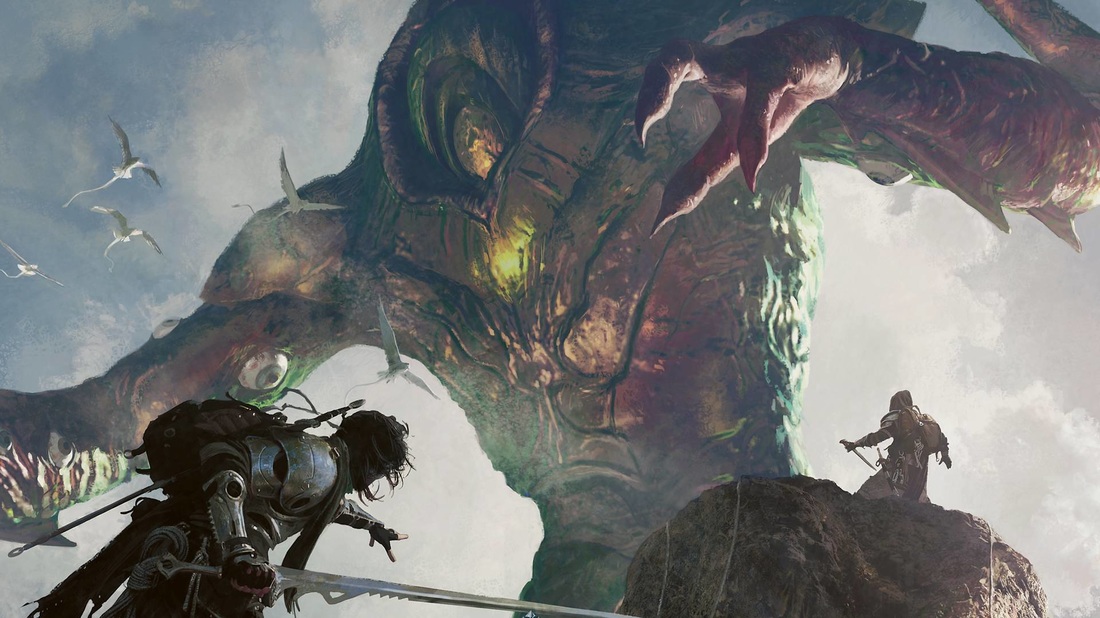 Whether you’re introducing your table to a game like Scion or Exalted, or your players are about to hit 18th level in D&D, every GM should be prepared for high-powered play. When player characters attain these lofty heights, their options for managing situations expand greatly. The once-troublesome task of defeating a few bandits becomes trivial for these powerful characters, and the focus of the game changes from “how can we defeat them” to “how should we defeat them.” As we all know by now, “with great power comes great responsibility.” What we should also learn, however, is that absolute power can corrupt absolutely. Here’s a few ways a GM can foster these ethical discussions while still allowing their players to have a blast with their powerhouses. 1 . Incremental Challenges Demigods should have demons to fight. This means introducing sufficiently powerful enemies for your players to go up against, naturally, but it also means introducing greater problems for them to solve. Instead of solving a drought experienced by a small town, have the players restore water to an entire region by matching wits with the vengeful god who’s been withholding the rains. Keep the encounters exciting and grand. Let players experience the lasting effects of their influence over the setting, and make certain that NPCs show the appropriate amount of reverence or fear when interacting with your players. Still, power begets power. Challengers should readily rise up to face your heroes, creating epic clashes high above the world or deep within it. Every superhero needs an arch-villain, after all. 2 . Incredible Experiences In a high level game, you shouldn’t be concerned about the mundane. It’s certainly important to remind characters from whence they came, but don’t get bogged down in the minutia of everyday existence. Instead, focus your descriptive powers on injecting supernatural or superlative details into the setting. Describe amazing vistas and unreal sensations. Your characters have transcended the terrestrial and now reside amidst the ethereal; let them experience it to the fullest! Everything should be bombastic to a certain extent. Every swell of power should make characters feel their godly might. Every trip through a strange dimension or across alien terrain should be unique and captivating. One trick I like to use is synesthesia. I describe sights using flavors, and vice versa. It’s a fun trick that let’s players really experience something unique and empowering, but still relatable. 3 . Insightful Revelations When your characters wield deific or heroic powers, the story beats should be equally as lofty. Plot reveals should be powerful and well-constructed. Betrayals should occur on a grand or cosmic scale. Entire regions should be threatened with extinction. Triumphs should be heralded through the streets of large metropolises, and characters should be raised up on high and lauded for their incredible deeds. Rewards should match the characters’ deeds, be they “tangible” within the game or intriguing plot advancements. Since “more power” does not make for a great gift to an already powerful character, make certain your rewards are varied and pleasing to your players on an individual level. At the end of a long campaign, you’ll most likely be familiar with the types of things they will enjoy. 4 . Indelible Impressions A martial artist using her chi to soar into the sky at breakneck speeds. A god-born whose wisdom is so vast, he can solve any problem that befalls him. A sword-goddess, the power of whose blows are matched only by the strength of her convictions. These characters are the stuff of legend! If you do nothing else, let your players have fun. Let them leave impressions on your denizens that will leak into your future games. Let them shape the world that you’ve created as they go mad with power. Only by letting them experience the fullness of their characters’ potential can you help them understand the nature of power and how it applies in your setting. You might be surprised at not only how much fun they will have, but how strong of a dramatic impression such cosmic might can make. I hope you consider running a game that gives your players a chance to be almighty. It can be an incredible experience for all involved, not the least of which would be you, the GM! Share your favorite high-powered gaming stories with us, and feel free to recommend games that let out the leash. David Horwitz is a gamer and freelance writer with an obsession for exploring new forms of leisure. If you’re looking for an inquisitive mind and a deft hand, or just want to chat about gaming, contact him at www.davidhorwitzwrites.com/contact 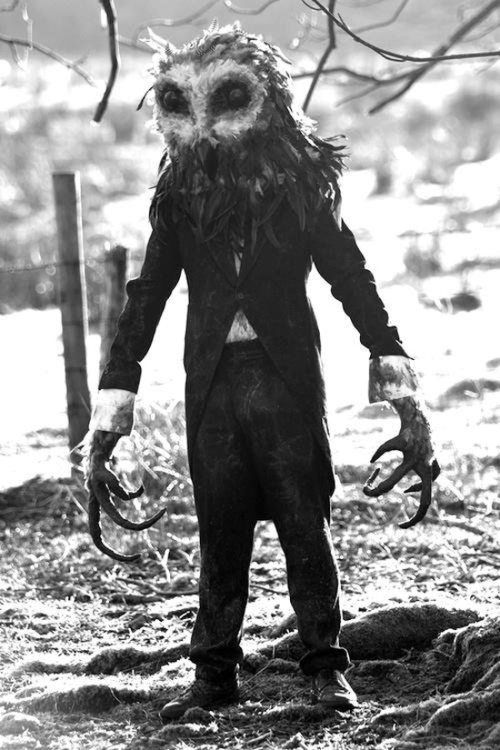 If you’re like me, or anyone in my group, autumn is the best season for you. The weather is nice, there’s always a strange sense of nostalgia floating in the air when everything is changing, warm sweaters and fancy pea coats come out of the closet, and most importantly; Halloween. The holiday is a breeding ground for your imagination to run wild in every direction. Whether it’s psyching yourself out when you’re home alone at night, creating a cool costume for yourself or your child or doing something as simple as shopping and seeing all of the neat decorations that are out there, Halloween just oozes creativity. What better outlet for that creativity than an adventure for a Tabletop RPG? 1) CREATION OF A TRADITION Every year my RPG group runs a Halloween themed adventure for the month of October. The last week in September we sit down, talk about themes we’d like to see, and that’s when I get to work as the GM. To be honest, it creates an extra layer of excitement to the Halloween atmosphere. It also gives my girlfriend the desire to put herself through sewing hell to make a cosplay for the character she’s playing. A couple months before, my game group is buzzing, thinking about what possible spooky shenanigans we can get into this year. Traditions like this add a change to the regular gaming schedule which not only make people excited, but help keep things fresh. Maybe someone who doesn’t normally GM wants to run the yearly Halloween game this year? It gives you a break from the main campaign you play to help with burn out and also gives you an opportunity to be on the other side of the screen. A win-win, don’t you think? If you’re too old to go trick-or-treating but don’t have any children of your own, this is the perfect way to get your costume on and eat sickening amounts of candy with some friends and also tell a good story. It also helps you avoid those awkward and slightly annoying Halloween parties where everybody gets plastered. Tradition is a basic part of human nature and the opportunity to create your own is a marvelous thing, especially if it’s with a group of people you sincerely care about. It’s a minor enough holiday that it (usually) doesn’t interfere with any family gatherings. Then again, it’s major enough of a holiday for it to feel special as opposed to the usual game that you do every other week of the year. So let’s sum up: Camaraderie? Check. Excitement? Check. Freshness? Check. Lack of blithering drunken idiots? Well… maybe check, but at least these drunken idiots are YOUR drunken idiots. 2). EASILY CAPTURED ATMOSPHERE Halloween has this ambiance that comes with it and it is super easy to translate that into a game, especially if you’re using a horror driven system like Night’s Black Agents from Pelgrane Press or Dread from The Impossible Dream. Though, it’s obviously not essential, using a game system that lends itself to horror can be super fun, more so if it’s not the normal system you play. Fantasy settings tend to be really easy to turn into horror, whether whimsical or serious. Turn down the lights, add a candle, put on some creepy music and you’ve got yourself a Halloween game! Sound supplements such as Syrinscape and Battle Bards can be incredibly useful when trying to emulate, well, anything really. One could argue that paying for these supplements is not the wise decision if you only intend to use it once a year, and that’s valid. That’s why we have fantastic free stuff like YouTube and Sound Cloud to give us content to use with an interface that allows you create a playlist and the like. So sit down, turn on some sound, and tell your players, “Guys… it’s about to get spooky.” 3). OPPORTUNITY Running a one-off game usually gives you the ability to explore themes and ideas that you might not have a lot of experience with. If you have an idea for your main campaign and don’t want to introduce it due to fear of failure or mediocrity, this is a good way to crank out a version of it. Of course, some themes and ideas won’t be able to be twisted into a spooky Halloween adventure, but it’s always worth a shot. Chances are you’re a good game master for your normal group and even in defeat, your players enjoy what you do. Taking a swing at a romance plot line could turn into a horror scenario quite easily. Everything seems normal before there’s a creepy twist! With the majority of the game being a romance plot before things go awry helps you practice running that element without the horrific twist. One off games can be a powerful tool in the GM’s arsenal and what better opportunity to take a whack than a traditional, once a year game? The holiday is ripe for the taking! Create an adventure in a haunted castle, a cursed graveyard or a town where something… just something isn’t quite right. … If you dare. Stay Metal \m/ Sean is a BMW technician by day, the Heavy Metal GM by night, and loves everything about 13th Age. If the game interests you and you want to learn more, check out his 13th Age blog here. King Of The Castle: 4 Aspects Of Domain Management Which Can Be Included In Tabletop RPGs17/10/2016 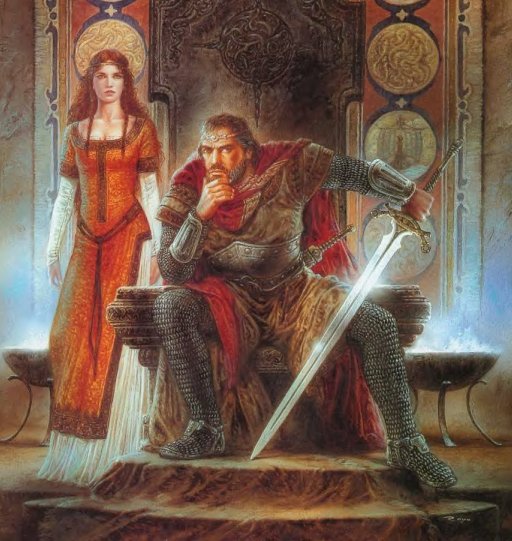 .A common element in many video game RPGs is management of home base, be it the Ebon Hawk in Star Wars Knights of the Old Republic, your chosen house in Skyrim, Skyhold in Dragon Age: Inquisition, the Jackdaw in Assassin’s Creed IV, the Normandy in Mass Effect, or your base in XCOM (yes, I realize not all of these are RPGs, but they all have at least some RPG elements). These provide the player with a part of the fictional game world to make their own and improve. I’ve not yet played in a tabletop campaign which has been able to match such video games in creating a space in which I’ve had such personal interest in developing. I’ve taken some of my favorite experiences in estate management from the video-gaming world, attempted to figure out why they were so fun, and translate that into use in tabletop RPGs. Here’s what I’ve come up with: 1. Land- Provide the players land and/or assets and reward players for interacting with them. It doesn’t matter what the land or assets are, be they a castle, ship, tavern, or even just a bare patch of earth, so long as players can make something out of them. There should be a sense of progression in the ownership; the players need to be able to make it their own, customize it to suit their needs/whims, and improve it over time. The rewards that come from ownership should also progress accordingly. The easiest rewards are financial. A steady income can be earned, be it from the taxation of lowly peasants or a weekly take from a tavern’s profits; as time and investment increases, more money should be able to be earned. However, rewards should not be limited to financial. Less tangible but more desirable benefits should be given whenever possible; these only limited by your imagination. Just a few off the top of my head- prestige in the eyes of the local nobility (and the favors that follow), involvement and influence with a local guild, new ways of interacting with the land (see governance below), political power on a local or regional scale, 100 foot tall golden statues of the party, and the attraction of followers (see minions below). Questing and adventuring is great fun, to be sure, but property and estate management can also be great fun, if done correctly. 2. Minions- While it’s certainly fun to have land and buildings, it’s even more fun to have people. Minions can come in all shapes and sizes but they need to either provide some tangible benefit to the players or have an interesting enough personality to warrant interaction; in other words, the players should be given a reason to care about their minions, because of what they can do for the player or who they are. Through the attraction and management of followers, the players should be able to earn rewards similarly to management of property. Followers are much more versatile and valuable tools and should be treated as such. Followers can be assigned missions or tasks to benefit the players; these missions can have their own rewards and chance of success based on the difficulty of the tasks and the skill of the one(s) undertaking them. Making your players care about their minions, not just in a general sense but on a personal level, can be difficult, but if done successfully, will drive the players to invest more in the relationship and the community they’re building. The GM can use these relationships to enrich the story and drive character actions (i.e. have a beloved minion be kidnapped by local bandits and watch the players break loose all hell upon them to ensure their safe return). The people the players choose to surround themselves with also adds another layer of personality and personal modification to all that they are working to build. 3. Governance- Having assets, people, and land is fine, but the real fun comes in having authority over them. Giving the players meaningful control of the policies, actions, and affairs of their little piece of the world is paramount. This ranges from being able to control what goes on inside their borders to how their domain influences the world at large. Choosing what buildings will go up, what people will be employed (or enslaved), and how things will run gives players an important sense of control over their little kingdom and motivate them to care about what happens to it. Presiding over the very fates of their people can be a challenge, especially when players’ decisions will lead to the literal life or death of their domain and/or its inhabitants. The players should also be able to use their domain as a tool to influence the wider world. Some examples of this might be: swearing fealty to a powerful kingdom, clashing with neighboring territories, working for a particular guild, bullying smaller landholders, or starting their own nation. It’s challenging to give weight to players’ decisions, having both tangible rewards and consequences for different actions or policies they might take, but it is of utmost importance in order to generate the sense of ownership and meaningfulness in governance of their estate. 4. Economy- The lifeblood of any domain is its economy. The production and consumption of goods, services, and resources provide can provide an enjoyable aspect of estate management for some players (others might find such detail utterly uninteresting). Managing supply and demand of various resources and goods can engaging for players, provided there are suitable rewards for doing so. Typically such rewards come in monetary form. In some cases, mitigating disaster and their estate falling apart is reward enough, e.g., their kingdom had a poor harvest and is on the brink of starvation if the players are unable to secure a source of food. While creating a functioning economy that is realistic and engaging is likely too large a task to be undertaken in a tabletop RPG, the GM can pick and choose different economic elements to include in the management of the players’ domain, according to the temperament of his or her players (a group full of economics professors might enjoy an intense economic simulation; a group of normal people - probably not so much). As a lover of strategic elements in gaming, I find domain management to be a real pleasure, a chance to flex some of those planning muscles which all too often are dormant when gaming. Hopefully you found some useful ideas that you can take to your own game. I don’t often look to video games to inform how I should be playing at my tabletop, but in this case, I think that many video games have done an excellent job in fostering a sense of responsibility and personal interest in the development of a fictional property, which I think will translate very well into the wonderful, wide world of tabletop. - Jake is a lifelong video-gamer who has upgraded the Ebon Hawk to its fullest extent, spent hours crafting Lakeview Manor in Skyrim, and virtually pimped out the Normandy. He’s proud of these accomplishments but not so much as to put them on his actual resume. 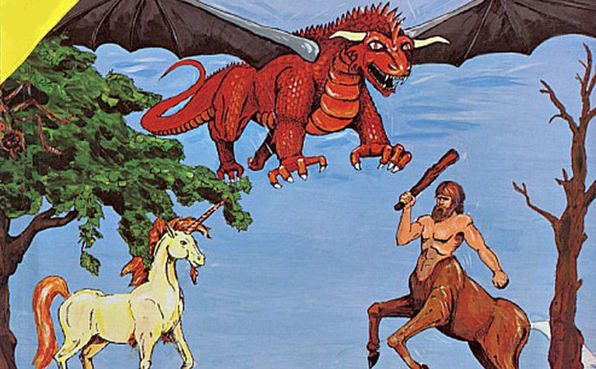 It’s not easy to run an RPG. There are so many pitfalls, you’d think it was a 3D topographical map of the Moon. Every game is different, though, and I have found that different genres have their own issues. Here are some main ones: 1. Superhero – From the Avengers to Batman, who WOULDN’T want to play a superhero? To defend the weak, or to fight the good guys, try to take over the world?? Superhero games are insanely fun. The main issue with it is balancing. Look at Marvel, to pick one publisher. You have the street level heroes, say your Daredevil. Then you have your mutants, your X-Man. And then you start to get people like the Phoenix or Franklin Richards. And then there’s Galactus. (If you don’t know any of them, think in sequence, superpowered human, REALLY superpowered, able to change reality, God-like). Now most people would like to have a really effective power that could be really good in a fight. But what if someone chooses to say control water, and someone else just wants x-ray vision? Without making them change their choices, how do you balance out your team? In a couple of words, with difficulty. Try and have your players see that it’s in the interest of the team to get powers that complement each other and work well together. And fine, get someone with a silly power; just make sure it doesn’t bring everyone down. 2. Fantasy – D&D being the juggernaut that it is, the main issue about fantasy games is one of clichés. If you want to be in a dungeon for aaaaages, by all means. I’ve read narratives where people spent YEARS in the same dungeon, exploring room after room, of what turned out to be a couple of hundreds of them. Left to its own devices, a lot of fantasy games end up being very similar, the escort, the exploration, the killing. It is both the party’s and the GM’s responsibility to clean this up and come up with games that are really exciting. Traitors. Weird creatures. Things not going according to expectations. Mix it up! 3. Horror – Horror is really difficult to transmit in a RPG game. The players can’t see your monster, so they won’t necessarily be really scared by it. So how to convey the impending sense of doom? Different people have different techniques. The Cypher system rolls a die, and if you roll a 20, something dodgy happens. Then you roll it again after a few minutes, now you only need a 19 or a 20. And next time, 18, 19 or 20…. Doom is coming. My favorite is using a Jenga tower. There’s a whole game based around it (Dread) but you can just use the tower. Every time someone wants to do something, pull a piece. When it tumbles, something horrible happens. Doom is coming indeed. 4. Sci-Fi – These issues are similar to those described above for Fantasy. After so many sci-fi series, it is easy enough to fall into stereotypes, the logical alien, the warrior species, the evil imperial civilization. The solutions are pretty much the same as with Fantasy as I said, shake it up, don’t fall into clichés. Maybe your warrior species loves flowers. I don’t know. Could happen. 5. Police/Detective/Clue-hunting – A lot of games will have a search-for-clues aspect to it. Say Call of Cthulhu, there’s a big component of clue-searching. But then the problem is always the same: what if the players roll badly and they don’t figure out where the things are? How do you manage your players not finding an object that will drive the narrative forward? Different people and different games run it differently, of course. There’s a dedicated system for clues (GUMSHOE), and most GM’s play it loosely. Like, you’ll ALWAYS need to find the relevant thing, if it’s part of the narrative; it needs to be there. This aspect needs to be handled delicately, as players might feel like they’re being cattle-driven, and that their choices don’t matter. Alternatively, make them come across the clue in a different and less informative way, if they fail all their rolls, make them pay for it. 6. Cyberpunk / Steampunk – Sometimes hard to pin down for the totally opposite reasons of Fantasy. These genres are so open ended that it is easy to get bogged down, as in, what CAN we do next? You need to spend some time building the universe, before your characters know how little or how much they can do. Is this a Blade Runner-type cuberpunk, with androids and spinners, or is it based on a human city in an alien planet, millennia into the future, where humans can freely fly and turn into energy? This goes also for Steampunk, you need to be careful and establish what your Universe is all about before you start, otherwise your players with find themselves lost in the story. Do you agree with these? What have been the genre-related issues you’ve found? Rui is a Portuguese scientist that, after a decade doing odd things in labs, became a teacher. Then, 20 months ago, RPG’ing came into his life and he is now happily juggling the two. He is currently working on a Cypher system space/superhero adventure and a Fate-based Cyberpunk one (with a dark, secret twist). He lives in England with his partner Joana, an ungodly number of potted plants and at least 3 to 4 Adventures across as many rule systems, at different levels of completion. He can be reached at @atomic_rpg 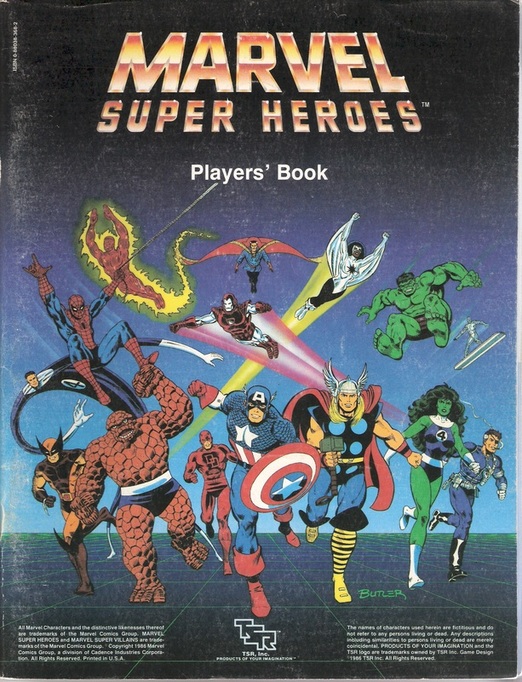 The first role-playing game that I ever played (back in the year 2000) was the Marvel Super Heroes Role-playing Game. I was a fan of comics ever since I was a child and this seemed to be a natural fit. Though the system had been out of print for years already, we had an old Advanced Player's’ Handbook that had everything we needed for both the Game Master and the players. My first character creation went very quickly, as I developed an idea with a friend. Soon, I was off playing pretend in the most tremendous way. EDITOR'S NOTE: An slightly updated version of the rules system called FASERIP is available at DriveThruRPG where it can be downloaded for free. Check it out! 1. Easy System to Pick Up The rule book is small and the calculations simple. One page of coloured columns and rows meant that knowing the difficulty of your task and the skills you have could translate easily to success or failure of a task. You don’t have a ton of stats and talents and feats and spells and other things to keep track of. The front side of a piece of loose leaf paper was ample space for both your needed information and your doodles. 2. Familiar Non-player Characters Facing off against dastardly villains I remember loathing and being guided by legends of the superhero realm was a hook for me. Being in a world where I already knew not just the flavour of the setting, but actual old origin stories gives you an immersive experience. Really, role-playing in this game was just the culmination of childhood fantasies crossed with old playground games with friends. 3. Timely This is the era of the superhero. From the fun and campy Guardians of the Galaxy, to the classic Avengers, or even the gritty side of Luke Cage, Daredevil, and Jessica Jones, we have a wealth of story to create from and a context that can be used to build our world. There is no superhero genre that has not been sparked in recent years. This makes me want to start up another game ASAP. 4. Karma Points Karma points are possibly my favourite part of the Marvel Super Hero system. They replace experience points that most role-playing games have. You gain the points by doing ‘super hero’ type things like saving children, stopping villains, and delivering most excellent monologues. But you can also lose these points by killing someone (even accidentally), stealing, or other unheroic acts. These Karma points could be used to boost your luck on rolls that were extra important (no one wants the hero to fail) or to save and used to boost your powers or stats. It gives the world an authentic comic vibe which I love. These are the reasons, you should grab an old book, some PDFs online, and start up a game. You won’t regret it. Vanessa is a sarcastic, 30-something wife, mother and educator. She likes things and stuff, but not simultaneously (she is not a machine!) She is also trying out this new twitter handle at @sarasma_nessa (though she is terrible at it) 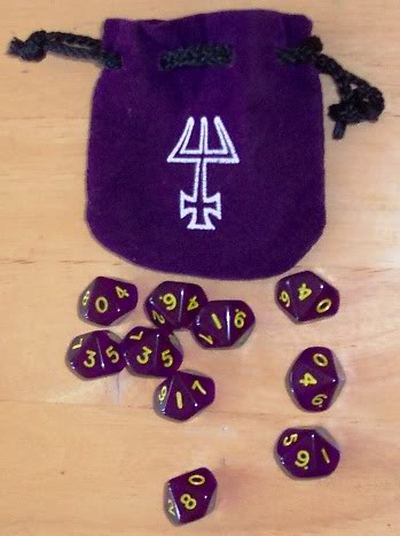 Mage is one of the games I’m running right now and I really love the different paradigms of magic each of my players is bringing to the table. What follows is a brief idea list of concepts, paradigms, tools/foci, and suggested spheres for characters. As the title suggests, this is only for the Traditions, as I’ll be developing a list of Disparates and the Conventions in the future at some point. What out of the box type paradigms have you seen used well in your games? 1) MAINTENANCE MECHANIC: Suggested Traditions: Virtual Adepts, Society of Ether, or Orphan: This person has worked in mechanical maintenance for years. They have started to see patterns and commonality across the jobs they do. So much that they have begun seeing those features in everything around them. Tools/Foci: Tool Box, Hard Hat, Diagrams. Suggested Starting Spheres: Prime, Matter, Forces, Mind 2) CORPORATE SALES: Suggested Traditions: Celestial Chorus, Order of Hermes. This person was scouted by the Syndicate but found lacking. They are a consummate salesperson, and they actually care for the people they sell to. This person to person loyalty is essential to this character, they truly see what they are selling as beneficial to the body, mind, and soul of their customers. Tools/Foci: Cell Phone, Salesforce, Bluetooth Headset. Suggested Starting Spheres: Life, Mind, Correspondance 3) DATA ANALYST: Suggested Traditions: Verbena, Orphan, Virtual Adept, OoH. This person loves math and the environment. They've dabbled in new age faiths or traditional magic and see the power numbers have in traditional numerology and in modern analytics. Data drives the world, and data seeks to empower and explain the universe. Tools/Foci: Tableau, Laptop, TI Calculator. Suggested Starting Spheres: Mind, Correspondence, Spirit 4) FOOTBALL NUT: Suggested Traditions: Akashics, Cult of Ecstasy: Football is life, and football has the ability to bring people together. The Football Nut keeps his body in excellent physical shape in case he ever gets a call back to play again. Beyond that, he sees football as a way to harmony and inner light. Tools/Foci: Football (duh), workout bench, fantasy football app. Suggested Starting Spheres: Mind, Life, Forces 5) TRIBAL ACTIVIST: Suggested Traditions: Dreamspeakers, Verbena: Working toward making life better for your people drives your life. You use a mix of social media and traditional magic to empower your people and help drive change. Tools/Foci: Cell Phone and wi-fi hotspot, herbs, megaphone. Suggested Starting Spheres: Mind, Life, Spirit 6) ACCOUNTANT: Suggested Traditions: Order of Hermes, Virtual Adepts: You keep the books. Not only that, but you keep them so well that you find places to make more money. You might be friendly with the Data Analyst, but you are looking for different patterns. The good thing is that you know how to have a good time alongside running the numbers. Tools/Foci: Calculator, Laptop, Glasses. Suggested Starting Spheres: Mind, Matter, Prime 7) YOUTH MINISTER: Suggested Traditions: Cult of Ecstasy, Celestial Chorus: You believe in the fervent compatibility between the expansions of consciousness and religious awakening. Your fellow millennials may be running away from religion but you see the guidance from a higher power that can lead all of mankind to awakening. You are happy to listen to your peers, as their view of the world helps to provide ways to assist them. Tools/Foci: Smart Phone, religious text, psychedelics. Suggested Starting Spheres: Mind, Correspondence, Spirit 8) CROSSFIT DUDE: Suggested Traditions: Akashics, Society of Ether: You live, breath, and die CrossFit. You want to share cross-fit with everyone. Did you know that they do CrossFit? It’s great. The amazing thing about cross-fit is that it helps the soul as well as the body. Tools/Foci: CrossFit, work-out related t-shirt, barefoot running shoes. Suggested Starting Spheres: Life, Mind, Time 9) METER-READER: Suggested Traditions: Order of Hermes, Society of Ether, Virtual Adepts: You are the best damn meter-reader on the planet. You are always there just in time to tag someone that is over time. You also are a pretty good person though, so you look for ways to help people get an extra 10 minutes of time on their parking meter. Sometimes all it takes is a good jog of the meter. Tools/Foci: Clipboard, Hand scanner, heavy boots. Suggested Starting Spheres: Forces, Matter, Time 10) THE BLOGGER: Suggested Traditions: Any Self-referential humour is your speciality, even if no one else finds it funny. You change no one’s opinion with your writing, but you really hope that might change eventually. Tools/Foci: laptop, Wordpress, Facebook. Suggested Starting Spheres: None, but maybe if you are lucky you’ll pick up a few in Mind. Sure, some of these got a bit silly, but I think you can make any paradigm work in Mage if you start thinking outside of the box. Most Mages probably have a job, or work in the real world. With 17 years of playing rpgs, Josh started with Mind's Eye Theater LARPs and loves the World of Darkness. He recently launched,www.keepontheheathlands.com to support his gaming projects. Josh is the administrator of the Inclusive Gaming Network on Facebook. He’s a player in Underground Theatre’s and One World By Nights Vampire LARPs and is running both a Mage game and a Dark Ages: Vampire game. He’s a serious advocate for inclusive gaming spaces, a father, and a recent graduate from the International Peace and Conflict Resolution graduate program at American University in Washington, D.C. 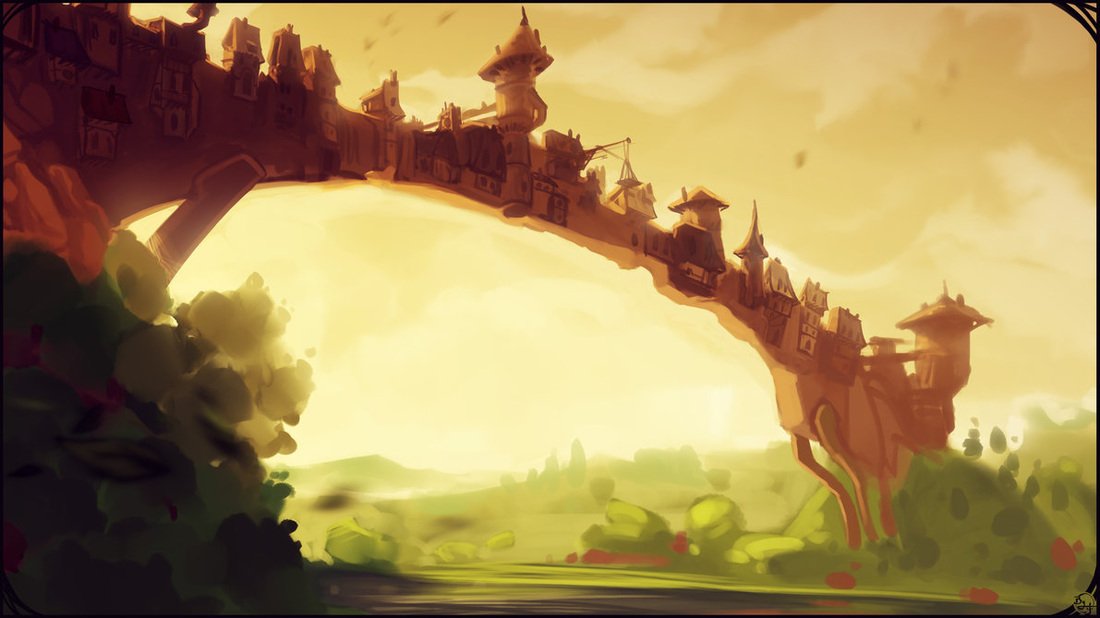 Well fall is here and things are in full swing around the office. It’s the time of the year to look back in retrospective as to how things were and where things are going as we plunge into the icy depth of winter. If you’ve been gaming for a long time and are capable of reading and talking some things on this list are old news to you but for you younger or newer gamers here are some things about early role-playing that are great conversation starters over the table. 1) THESE DIE ARE NEAT The shapes of the dice actually fall into a category termed: Platonic solid (not to be confused with how tight your pants get when you’re standing next to your friend who just doesn’t know). Platonic solids are regular convex polyhedrons, represented in three-dimensional space. To fall within this category the dice have to possess congruent regular polygonal faces with the same number of faces the meet each vertex. Yada yada yada math stuff, the dice are as cool looking, as they are fickle. 2) WAR OF THE WORLDS Yeah, so H.G. Wells, the guy who wrote War of the Worlds and The Time Machine, was a huge influence on Gary Gygax, and probably invented one of the earliest precursors to modern role-playing games in his 1913 book, Little Wars. The book essentially was a DM guide, containing a set of fairly simple rules for infantry, calvary, and naval artillery. Which doesn’t necessarily make it a DM guide, but Wells also include drawing and photographs, as well as a first person account of what is happening in game based upon one of the fictitious general’s point of view. Oddly enough Wells was a pacifist. 3) GARY GYGAX CREATED D&D…MOSTLY Now Brian Blume helped with the funding but Gary Gygax set down most of the rules, kinda. The original core rules were actually developed by a hobby shop owner that Gary knew named Jeff Perren. Jeff was a member of the Lake Geneva Tactical Studies Association with Gary in the early 1970s and developed a core rule base for a medieval game called Siege of Bodenburg. Jeff then gave his established rules to Gary who expanded upon them with Dave Arneson and introduced magical concepts, and other refined mechanics into the game. 4) WILL SOMEBODY PLEASE THINK ABOUT THE CHILDREN For those of you were children of the 80’s you probably were asked by your parents at one point if you were playing D&D, in the same way parents today ask their kids if they’re smoking crack or playing with guns. Historically D&D comes with a bit of controversy that originated in some knee-jerk reactions to some truly horrible events. The accidents and suicides that contributed to the moral outrage towards D&D and it’s suspected Satanism in the 1980’s might have scared gamers at the time but actually did more good than harm. The increased publicity over the controversy actual sold more units than in previous years (to the tune of 16 million) and D&D was eventually vindicated in the eyes of the public over time. Towards the end of these events the New York Times speculated that with the attention D&D drew it would become emblematic of a generation, as Monopoly was during the great depression. Well there’s some history as to how the geek have inherited the earth. Now try to apply it to real life situations like Canadian Thanksgiving and traffic stops. About Ryan: So I try to read about 50 comics a week, depending on my ability to pay the power bill. I try to read as much new and independent works as my tried and trusted favorites, and I’ve been doing this for years. Thus, I can roughly say that I am pretty decent at comicology, however I hold no formal degree. Luckily, degrees are no substitute for common sense and that’s how I got this gig. 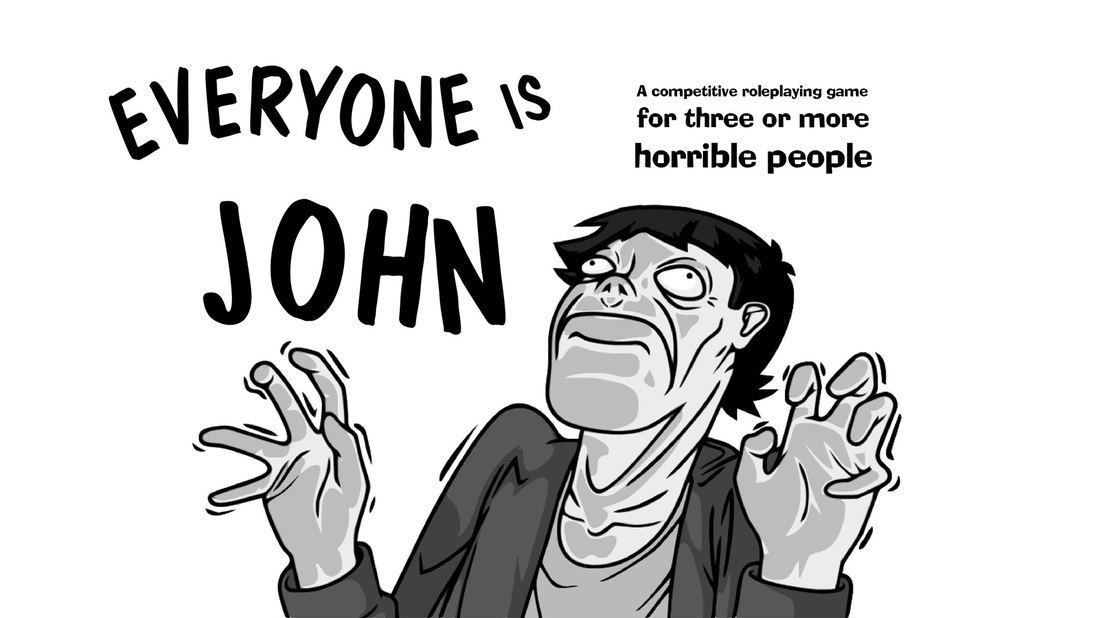 Now, I know what you’re thinking. A party isn’t really the most conducive atmosphere for breaking out the dice and heavy role-playing books. Just hear me out! Run one of these games for a group of friends while a bit of music plays in the background and adult players enjoy (responsibly) glasses of their favorite alcoholic victuals. Some RPGs really jive with a party vibe, and I’d like to introduce you to a few. 1 . Everyone Is John Here’s a great starter game that works well as an icebreaker. In this particular light RPG, players take turns controlling a single individual. Player characters represent personalities that constantly vie for control of John’s body in order to fulfill their unique obsessions. Personalities have different skills and phobias that make life easier or harder for the controlling player. The goal (besides getting into as many insane situations as possible) is to accomplish your obsession goal as many times as possible before the end of the game. The mechanics are simple enough so that RPG newbies and veterans will feel right at home. Just grab a d6 and the basic rules, and a few character sheets if you feel like it, and start John’s crazy, often fatal, adventures. 2 . Numenera One great party game choice that may shock you is Monte Cook’s Numenera. The setting for the game proves incredibly detailed, with quirky characters and monsters around every corner. Fortunately, the system is very simple, making it easy for the GM to create NPCs quickly. A game of Numenera should be fast paced – when you’re dealing with nanotech, characters that can ride lightning bolts, and truly bizarre alien lifeforms, it’s best to keep things moving rapidly. Making characters is fun in its own right, as you roll randomly for powers, trinkets, and artifacts. Players should be encouraged to act on impulse and help contribute to the story and setting during play. Throw in a little techno music and schnapps, and I think you’ll be pleasantly surprised with the results! 3 . The Extraordinary Adventures of Baron Munchausen No books required for this party favorite! In this gem, players need only concoct the most absurd sounding name for their adventurer and it’s off to the races. Party goers take turns telling the most incredible, outrageous story they can think of, based entirely on another player’s wild suggestion. For instance, a player might start another’s story with, “tell us the time you fought off the Pacific Grunge-Bears with naught but your comb and trusty jaw implants!” The kicker is this: during each story, other players can wager coins in order to throw in a complication that the story teller has to then counter with their own coins or accept. If they accept the change, they keep the coins offered; otherwise, the coins go to the interrupter. Collaboration continues until the story comes to its climax and eventual close, then play passes to the next adventurer. Oh the tales you’ll tell! 4 . Paranoia! My favorite party RPG will probably always be Paranoia! This wonderful RPG places characters into Alpha Complex, a Cold War-style bunker safe from the nuclear wasteland waiting in the dreaded “outside.” Here, Friend Computer runs a perfect utopia, where nothing ever goes wrong, and when it does, valorous Troubleshooters (that’s you!) rush to fix it. Players are responsible for fixing the trouble as well as keeping a wary eye out for Commies, Mutants, Traitors, and Mutant-Traitor-Commies. More often than one might think, these undesirables are lurking within the ranks of your squad. Maybe you’re a traitor! Whatever the case. a well prepared GM will provide players with such handouts as toy guns, “happy-pills” in the form of candy, hilarious forms to fill out, and an endless supply of doubt. As each character has a total of six clones (read “lives”), caution is easily and readily thrown to the wind in favor of wild accusations and hilarious clone-deaths. I have to give special props to my bud Eric for his fantastic game that I was able to enjoy at our most recent convention. Eric, if you’re reading this, I must have more Paranoia! As should be plainly obvious by now, there are plenty of RPGs that you should consider for your next shindig. Have you run a game at a party before? Which would you recommend? Let me know! My e-mail is located in my bio below. Have fun out there. David Horwitz is a gamer and freelance writer with an obsession for exploring new forms of leisure. If you’re looking for an inquisitive mind and a deft hand, or just want to chat about gaming, contact him at www.davidhorwitzwrites.com/contact . 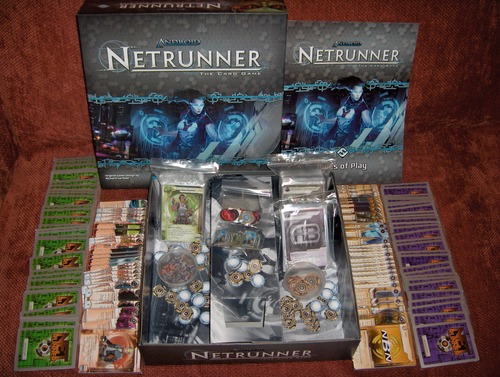 Since the latest board-gaming-to-role-playing crossover article seemed to have at least a moderate amount of drawing power, I figured I’d get more traffic for the HLG corporate behemoth... I... I mean... Since you guys enjoyed the last article so much, I figured I’d keep on your toes with a slight twist on the same aspect! This is no way a stunt meant only to increase the exposure of the blog or the website as a whole. Promise. Now put down the pitchforks… and dowse the torches. Speaking of crazed masses, have you guys seen all the acclaim card games in their various incarnations (TCG, CCG, LCG... FFS) get these days? What’s interesting about card games is that some of them are oozing with role-playing hooks and they don’t even say that on the box! For shame! That’s where I step in. Here are 3 card games made of pure role-playing substance & awesome sauce. 1. WARHAMMER INVASION (WHI) Created by Fantasy Flight Games (FFG) around 2008, and part of the LCG genre, WHI saw its fair share of World Championships and tons of expansions only to fizzle out of existence and availability just as I was really getting into it. At first glance, WHI is your run-of-the-mill 1-v-1 card game in which you’re trying to knock your opponent’s teeth in via destroying (Burning) a certain amount of their base (here, Capital). The way the WH Fantasy theme is transposed into the game’s mechanisms and the way those mechanisms throw a neat and exciting spin on proceedings really shine with this one. Imagine running a sprawling metropolis that needs to withstand the enemy’s attacks and dish out some pain at the same time. You’ve got 3 areas to worry about: your resources (Kingdom zone), your recruitment/tactics options (Quest zone, where you actually send your units on quests...) and your Battlefield zone (So inspiration, much wow!). You can use your cards to bolster any and each of these zones, and you’ll definitely want to since they’re all important for your logistical well-being. Every card you play in the Kingdom zone gives you resources to pay for cards, with the Quest giving you card draw – simple, yet thematic as funk! Add to that the fact that each of your zones can be attacked separately by your opponent and the small issue that it normally takes 2 burning zones for you to lose the match, and it’s less a matter of chucking cards down and more a kingly nightmare in which you’re trying to make the best decisions in order to keep your capital living long and prospering. The brimstone-flavoured coup de grace this game serves is an amazing race representation within the cards themselves. The special powers/playstyle of each and every fantasy group contained within WHI is masterfully done and explained… and purdy. It’s very hard for a card game to relay its theme in such an effective manner and make you feel like you’re commanding an army, taking the fight to your opponent’s capital, looting, pillaging, scheming and planning for dear life. I enjoy being able to get sucked into a universe without knowing more than the broad strokes about it in the first place, and WHI does just that. The way the cards can be used in either of the three zones in order to bolster your economy/defend the areas allow you to build your decks openly, strictly focusing on the combos you want to add into them, not having to worry about those 15-20 resource-only cards that take up a sizable chunk of your fun factory… With dragons, ambushes, scouting, raiding, end-of-days-style plays that bring all of your dead units back... you could get lost in this game for battles after battles after more battles, it’s just pure fantasy fun in its best incarnation. A soon-to-be out of print series, WHI has been grievously overlooked in any and all ‘best card games evah!’ lists I’ve come across so don’t always trust the majority. Put yer best dwarven beard on and role-play the cards outta this one! 2. LEGEND OF THE FIVE RINGS CCG Oh, look, another series that’s all but gone, this time belonging to a franchise picked up by FFG who are coming out with an LCG next (2017) GenCon and guess when I jumped in! Yup. Right at the tail-end of Yojimbo-outta-luck. Le sigh… L5R, which sounds like either a dumb name for a rapper or a good name for a wrestling finisher, takes place in a pseudo-feudal Japan, taking the best of what history used to offer back in the day – i.e. Samurai, Bushido, bamboo harvesting and whatnot – and melded it with the stuff of legend – i.e. magic, dragons, Oni, undead spirits of long-dead Samurai – the resulting cocktail being as pleasant to watch unfold before you as it is stressful to play. Each player picks one of the 9 main starting factions with plenty of variety to choose from, be it the Phoenix magix, Spider bad-juju spirit stuff, Lion nobility and military prowess and so on. The mechanisms here complement a great theme and do a brilliant job at enriching it. You’ve got 2 decks of a minimum of 40 cards each with which you play: Dynasty and Fate. Dynasty decks are full of people (personalities) and lands (holdings) that you recruit from a line of 4 provinces, as well as certain events and other twisty stuff to make life more interesting and your opponent want to sepukku. Fate decks are mostly tactics/strategies that you can play in various circumstances or go rummaging through if need be. The way I see it is this: you travel across your provinces, either recruiting important samurai/monks/shugenja/peddlers of random goods to aid in your war effort or ordering your subjects to start working towards sustaining that effort. While you’re doing this and increasing your clan’s exposure, you’ll be gaining honor, be it via great people you bring to the table (punny, right?), tactics you apply or just by beating the feudal snot out of your opponent In L5R, winning isn’t straightforward. You’re trying to turn your clan into the most impressive actor in the land, win Imperial Favour, and there are no less than 4 winning conditions for you to aim toward. While I do feel like they missed out on sticking another one in there just for the sake of the name, I’ll let it slide on account of there being 4 separate winning conditions. You can either knock out your opponent’s provinces, amass a total of 40 honor, cause your opponent to drop to -20 honor, or have all of the five rings in play at the same time, the latter being called an “Enlightenment victory” for which you really need to build your deck accordingly. All of this is peppered with rules for dishonorable deaths, Samurai sacrificing themselves for the sake of others, shiny swords, ninjas copying other people’s abilities and so many other small bits it took me 3 full games to finally get it all right start to finish. Domo arigato for keeping it going for over 20 years, AEG. Domo fuckin’ arigato! 3. ANDROID NETRUNNER A deliciously furious and asymmetrical mess, Netrunner stands head, shoulders and cybertronic apparatus above the “classical-style” of modern card games. Drenched in tech-y programs and devices, pseudo-future inter-linked societal ambiance and drenched in bluffing and deduction opportunities, A:N pits a hacker, or Runner, against an evil corporation, or Runner vs. Corp. And currently available for once! On to the dirt! We’ve got the Corporate agenda-following vile dudes that have all the moneyz and the best in security and trapping mechanisms or programs in order to stop others from venturing in and stealing valuable data. Even with that, sometimes it feels a little happy-go-lucky to be frank, but the Runners have their own consoles, worms, software, and decoys required in order to break through the Corp defences and make it out alive – because yes, death is a possibility on the Runner’s side. Don’t go cyber if you’re nothing but a punk! As cringe-worthy as that sounds, I call trademark! It boils down to a rush for Agenda points, something that the corporation has to work towards, and the Runner is trying to steal. Glossing over the fact that the cards look “totes’ amaze”, or whatever the kids call it these days, and again carry the feel of the universe so well, FFG (yes, I’m a fanboy, shush!) went above and beyond with the in-game terms. The Corporations have R&D. Subsequently, their discard is the Archives. Runners have a Stack and Heap. The Corp hand is called HQ, while the Runner has a Grip. Playing cards? Not so fast Usain! It’s called installing. The Corp does so in Remote Servers protected via Root elements and Ice, and the Runner puts together his Rig with Hardware, Resources and Programs. Add server firewall subroutines that can only be taken out by certain software, getting Tagged, and losing important items from your Grip and it’s enough to make your gyro-head spin... Everything is also done within a set number of actions, or Clicks, each turn. The Corp has a more set turn, having 3 clicks at their disposal, with the Runner having 4 to… Pick up and run with. As you’ve probably guessed, this allows for a free-flowing, diverse turn flow rather than draw-play resource-attack-rinse-repeat. Yes, they did go to all that trouble to make you feel even more a part of the world and the meta for A:N complements it so well you’d think the players were actually living in the damned universe... The risk FFG took with shoving all these terms in an already heavy game paid off in bringing fiction to life, and also in making players really think about the game at hand 110%, lest they mistakenly read a term. It’s complex, it’s tense, it can go on for a while, and the uncertainty aspect – with the Runner not knowing if the Corp installed an Agenda or a trap – makes everything hang in such a fine balance that many a game of A:N was decided during a final, all-in Run for glory. Just take the FFG worlds 2012 Final Game 1 for a heart-stopping finish and a lesson in the amount of counter-bluffing and misdirection that A:N can bring. A literal “run for your life” game. Are you not entertained? Since I’ve enjoyed writing these couple pieces, I might come back with a part 3 once I get to play more of my upcoming, role-playing-oriented board and card games. You can probably see an overarching theme here: rich universe-building, bluffing, backstabbing and risk-taking with varying amounts of strategy spliced in – that’s just how I role. I feel like anybody with at least a passing interest in role-playing games should give these lists a glance and maybe jump in on some of the games I’ve gone through the trouble of writing about in my very limited, nigh-inexistent free time. Writer, gamer, and - provided he's got the time for it - loving husband, Costin does not rule out sacrifices to the Great Old Ones in order to get into the gaming industry. He's been role-playing for the better part of 6 years, but has been a joker, gamer and storyteller for as long as he can remember. His greatest pride is once improvising a 4-way argument between a grave digger, a dyslexic man, an adopted child and a sheep, all by himself. That moment is also the closest he's ever come to giving himself a role-playing aneurysm... thus far. 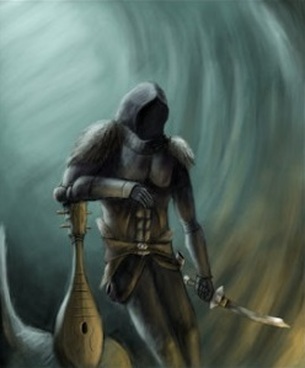 Previously, I wrote about domains that were best suited for paladins, but paladins are not the only class that needs help fitting in. When Domains of Dread was creating the rules for native classes, it also said there were no bards. This time, the argument was that the insular, paranoid nature of life in the Land of Mists was not conducive to traveling minstrels, except for the gypsies, for whom it offered a new player class. These--and the wolfwere bards of Kartakass--were expected to fill that role alone. But once again, these are more suited for an argument that bards are rare, not completely absent. Not all domains are culturally backwards and xenophobic, or at least not equally so. The best suited would be ones that are have a thriving economic middle class, value literacy and learning, and have lots of travelers from other lands, either by road or by water. Cue the slideshow: Kartakass: While it deserves to be mentioned first, I'm only mentioning Kartakass to say that it appears it's actually very hard to have a bard from here, unless you're a murderous beast. The wolfweres have entrenched themselves in the bardic tradition, and can presumably weed out naive humans who apply for bardic training. My only suggestion for having a non-wolfwere bard from Kartakass would be to draw inspiration from Heart of Midnight, with its non-evil wolfwere protagonist, the human friends he made, and the manipulative Darklord Harkon Lucas. A non-wolfwere bard who was protected by wolfwere allies or patrons for some reason might manage to graduate from the Crystal Club. Liffe: This little island nation in the Nocturnal Sea boasts perhaps the only university in Ravenloft that specializes in bardic education. The Nocturnal Sea Gazetteer by the Fraternity of Shadows goes into great detail about the costs and value of such an education. Even without this, the island itself has all the ingredients of a good bardic origin: strong local economy based in trade, traditional values in literacy and history, and lots of visitors from other lands, both from the Core and beyond the Misty Border. Of course, one possible downside might be that, unless your campaign is based in Liffe, your character will almost always be far from home. And if you remain in Liffe, the biggest danger might be in being good enough for Baron Evensong to invite you to entertain him for the evening…. Ghastria: Like Liffe in the East, Ghastria stands out among the Sea of Sorrows islands for its level of trade with the mainland. Mainland foods of any kind sell very well here, and entrepreneurs are bound to bring stories along with them. The need for such stories is only made more greater by the fact that Ghastria was once part of the continent before the Grand Conjunction, within the lifetime of any adult. This would all be enough to justify a bard or two, even without an aristocratic lord with a penchant for art and wild parties. But of course, like Kartakass and Liffe, Ghastria may be a little too inviting of fledgling artists. Entertainers at the Marquis' feasts will need to beware lest they learn too much about the real purposes of these quarterly celebrations, either firsthand or secondhand. Richemulot: Smack in the center of the Core, Richemulot is actually an excellent area for a bardic character to grow up in. Richemulot's strange false history would strongly discourage the development of anyone interested in probing the past, but it has enough of the other ingredients to qualify. Indeed, it may have the strongest middle class of any domain in the Core. Richemulouise bards would probably prefer contemporary music and literature, and would make great candidates for the rumormonger Prestige class from Legacy of the Blood. And unlike Kartakass, Liffe or Ghastria, the wererat rulers of the domain don't hate entertainment enough to make life difficult, nor like it enough to interfere too often. Borca: Growing middle class, trade on all sides by road and river, very long history in the Core--right back to the founding wars of Barovia--and the state-controlled Church make Borca a center of economics literacy and education. It would be hard for a social-based character like a bard not to get swept up in all the poison politics of Borca, but it's not like every dish is poisoned, and saying a character grew up in Borca amidst all the poisons is no more unusual than saying they grew up in Barovia amidst all the wolves and vampires: it's just assumed that, even with all the deaths to those causes, your character is one of those who has managed to stay alive...so far. Darkon: More than any other domain, Darkon is large enough, and cosmopolitan enough, for someone to travel around picking up widely varied stories and folklore without leaving the domain. Likewise, with all the people who come to Darkon and put down roots, (whether they intend to or not), the stories practically come to you. And it while the economy isn't what it was under Azalin, there is still enough upward mobility to allow for a moderate middle class. The memory issue that keeps people in Darkon is also the greatest liability, however: PC bards will have to brave going across the border, and risk discovering whether one of those stories they heard people from other lands was actually their own! Dementlieu: The Musarde River delta is an economic and social advantage that has not always been emphasized when Dementlieu has come up. Being a natural draw for commerce as far away as Sithicus or even Kartakass, this river delta is enough to get Dementlieu on the list all by itself. The educational climate is also very supportive of bardic subjects, all the way up to the University level, but the domain has strong economic stratification and a suppressive atmosphere when it comes to the arts that must be counted against it. While my suggestion about paladins from last time could also help with this problem, not every PC can be a relative of the Darklord. Most Bards in Dementlieu are going to have to pick a side: produce the soporific fluff that supports the status quo, or become a subversive and join the uprising against the nobility. And if you are too good, either choice includes the risk of becoming someone's mind-slave. Nova Vaasa: While Nova Vaasa has a growing middle class and river-centered economics--with each of the noble families taxing the properties along their respective rivers--it has one major drawback to playing a true bard: the Church's view of arcane spellcasting. The Iron Inquisition's dim view of "sorcery" is going to make it harder for a budding bard to learn arcane spells. Malken's criminal underworld might be able to help you out, if you pay their price, but there's another alternative: gnomes. Domains of Dread mentions that some of the nobles keep whole families of gnomish retainers, some of whom serve as entertainers. Bard was the favored class for gnomes in 3.5, and the protection of the noble families--and possibly their reputation as harmless jesters--might keep the Inquisition in check if these gnomes started teaching adventuring bards, or becoming such adventurers themselves. Vistani: Not a domain, but perhaps the best origin story for a Bard would be to grow up among the gypsies. Half Vistani PC's might be estranged from their tribe of origin, or a mortu Vistani might yearn to wander again. While some fans have argued against it, Domains of Dread clearly stated that the Vistani might take in a Gorgio child in for a few years and give them a view of the world from their eyes. This was actually the origin of the gypsy character class that was intended to replace the 2E bard to begin with. For those who dislike this option, their arguments against it tend to be--once again--more for rarity then for impossibility. Matthew Barrett has been playing and writing for Ravenloft for over twenty years, starting with the Kargatane's Book of S series (as Leyshon Campbell). This article draws inspiration from J. W. Mangrum's article "Classes of the Damned," in the Kargatane's Book of Sorrows. Tabletop-less RPG Gaming: 8 Impressions After My First Campaign In Online Tabletop Role-Playing3/10/2016 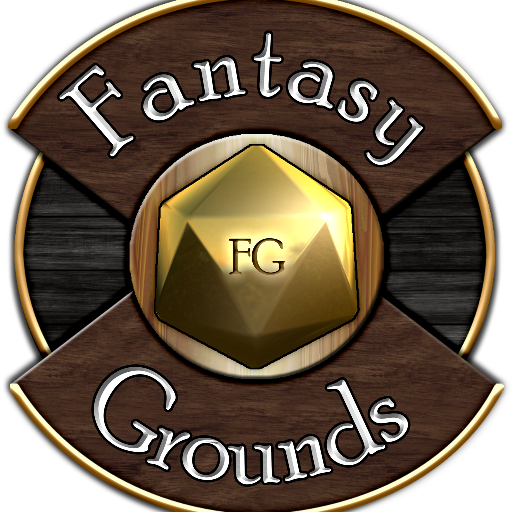 There has recently been an explosion of websites and programs which allow for players to play their favorite tabletop role-playing games over the internet. For those of you who many not be aware, these services, such as Fantasy Grounds, Roll20, and Fabletop, use webcams and software to mimic a tabletop gaming experience, down to rolling dice, map grid, and miniatures. They also can add a variety of other features using the magic of computers, such as dynamic lighting and automated stats. I recently wrapped up a campaign on Roll20, which was my first experience using an online tabletop platform. Here are a few of my impressions: 1. Easy to use- The game interface is simple enough to get playing right away. And why shouldn’t it? Online role-playing can be accomplished with just a random number generator and a webcam. Even without any knowledge of how to use any fancy features which are included, you can still effectively participate. Many of the features (e.g. integrated character sheets, miniatures) are intuitive enough that it doesn’t take a computer genius to figure out how to use them. Once everything is set up correctly, playing the game becomes a breeze; no longer will you ever need to search multiple pages of a character sheet to determine roll bonuses, as all of them can be automatically applied at the push of a button. 2. Hard to master- The software used in these programs is very robust and can be used to create a customized experience for the player. That being said, it might take a computer genius to get the most out of these features. There is a fairly steep learning curve to master some of the more complex features in these platforms, such as creating macros for taking specific actions, integrating conditional statements, and troubleshooting the technical issues which inevitably will arise with the user’s hardware (best solution: turn your computer off and back on again). Being the GM in an online campaign requires additional knowledge of the programs’ capabilities; however, as I was but a player in my game, I cannot speak to the GM’s experience. 3. No dress code- You no longer have to worry about being decent to go to gaming. You can now role-play in your three-day old, dirty, inside out tidy-whities and no one will even bat an eye. However, care must be taken when you get up to go to the bathroom… 4. Linear conversation- Unlike when a group is playing in person, there can only be one person talking at a time; it becomes impossible to understand multiple people talking through computer speakers at once. If your in-person group is anything like mine, there’s at least three conversations happening at all times, with the volume steadily rising to a dull roar before the GM calls for order. Limiting the chatter to a single conversation keeps everyone engaged in the story and the actions being taken by their fellow players. However, it also removes some of the fun that comes along with being able to have free-form conversations with fellow players. 5. Private conversations- Even though only one person may be able to talk at a time, that’s not to say that you can’t be communicating. Typing may not be a particularly desirable way of communication, but it allows for characters to have private conversations with each other and the GM. The GM can assign characters confidential information not available to the whole party, characters can make secret plans unbeknownst to their fellow party members, and yes, you can still make snide comments about the GM privately with your friends. This sort of secrecy is difficult to obtain in-person, as typically the entire group knows when there has been secret information passed (even if they don’t know what that information is) as the GM has to pull someone aside or text them. 6. Sensory component- I had assumed that the visual elements would distract from the gaming experience, but it was rather the opposite: having the map grid and miniatures take center screen aided in visualizing what was going on. Furthermore, there are a variety of features which enhance the effect, such as fog of war and dynamic lighting. Moving your character through a dark, incredibly detailed dungeon, being able to see no further than the light of your torch, combines some of the best aspects of video games (that edge-of-your-seat tension) with tabletop role-playing. Sound effects and music can also be easily integrated into the game, if desired. 7. No free snacks- you can no longer mooch off of your friends’ food. You must provide any snacks or beverages for yourself, which is a real letdown. 8. Distance- The best thing about online tabletop platforms (and I would say their raison d'être) is that they allow you to play with people with which you otherwise wouldn’t be able. It has allowed me to stay connected with my previous role-playing group, despite moving down to Texas. That being said, the experience isn’t quite the same as playing in person; there’s something about the in-person interactions that webcam and typing alone can’t replicate. Overall, I was pleasantly surprised by how much I enjoyed the experience and some of the features which aren’t replicable in plain tabletop (especially private chat with the GM and dynamic visual effects). It offered a unique role-playing experience that didn’t lose much of the character of the tabletop gaming experience (I was concerned it would feel too much like a video game). For those of you who’ve never tried it before, I’d definitely suggest giving it a try. It’s a great way to stay connected with fellow gamers who may be far away. Or if you just don’t get enough role-playing with your in-person group, there are a multitude of gaming groups you can find around the interwebz; just be careful though, you never know how many of them are playing in their underwear. - Jake is the least experienced and most underpaid writer at High Level Games. Living in Texas, he is also the southernmost contributor to the site. |
All blog materials created and developed by the staff here at High Level Games Archives
April 2023
Categories
All
|
Proudly powered by Weebly

 RSS Feed
RSS Feed